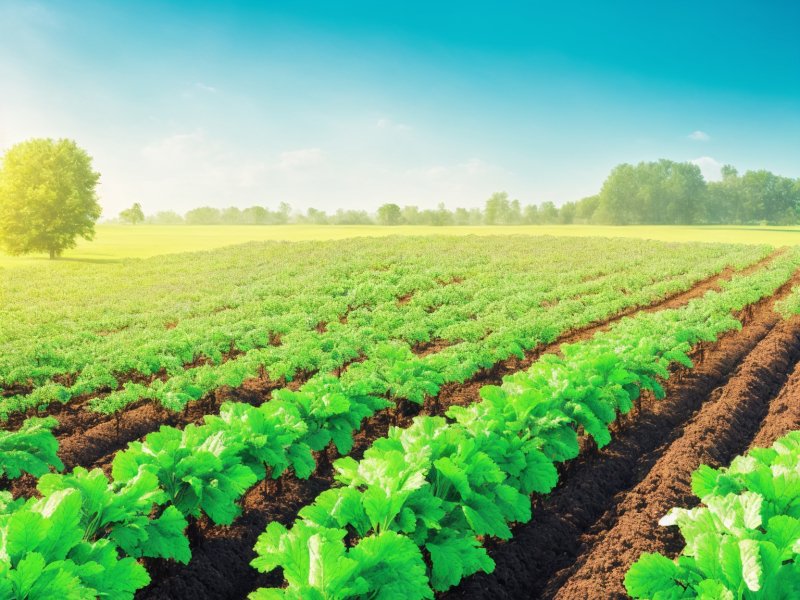
Introduction:
In an era marked by environmental concerns and the need for sustainable practices, the agricultural sector is undergoing a transformation. Green technology, also known as clean technology or eco-friendly technology, is playing a pivotal role in revolutionizing farming and food production. By embracing innovative techniques and solutions, farmers around the world are striving to minimize their environmental impact, conserve resources, and ensure a more sustainable future for the planet. In this blog post, we will delve into the various ways green technology is reshaping agriculture, fostering sustainable farming practices, and promoting efficient food production.
1. Precision Farming:
Precision farming is an advanced approach that leverages technology to optimize crop production while reducing waste. Through the use of sensors, drones, and satellite imagery, farmers can collect detailed data on soil composition, moisture levels, and crop health. This real-time information enables them to make informed decisions about irrigation, fertilization, and pest control, minimizing the use of chemicals and reducing environmental pollution. By precisely tailoring their actions to the specific needs of each crop, farmers can increase yields, improve resource efficiency, and lower costs.
2. Vertical Farming:
Vertical farming is a groundbreaking technique that involves growing crops in vertically stacked layers or racks, typically indoors or in controlled environments. This method utilizes hydroponics or aeroponics, which involve growing plants without soil, using nutrient-rich water solutions or mist. By optimizing light, temperature, and nutrient delivery, vertical farms can produce higher yields in smaller spaces compared to traditional agriculture. Additionally, this approach significantly reduces the need for pesticides and herbicides, conserves water, and eliminates the impact of weather-related risks. Vertical farming has the potential to revolutionize urban agriculture and provide fresh, locally grown produce year-round.
3. Aquaponics:
Aquaponics is a symbiotic system that combines aquaculture (fish farming) with hydroponics. In this integrated system, the waste produced by fish serves as a nutrient source for plants, while the plants filter the water, creating a closed-loop cycle. By eliminating the need for chemical fertilizers and reducing water usage, aquaponics offers a sustainable solution for food production. Additionally, it minimizes the discharge of pollutants into the environment and conserves energy by creating a self-sufficient ecosystem. Aquaponics can be implemented in both small-scale urban gardens and large commercial operations, making it a versatile and environmentally friendly farming method.
4. Renewable Energy in Agriculture:
Renewable energy sources such as solar power, wind energy, and biogas are increasingly being integrated into agricultural practices. Farmers are harnessing the power of the sun through the installation of solar panels to generate electricity for various applications, including irrigation systems and farm machinery. Wind turbines are being employed to generate clean energy for rural farms, reducing dependency on fossil fuels. Additionally, biogas production from agricultural waste offers a sustainable alternative to traditional energy sources. By adopting renewable energy solutions, farmers not only reduce greenhouse gas emissions but also gain energy independence and lower their operational costs in the long run.
5. Smart Water Management:
Water scarcity is a pressing issue in many regions, making efficient water management a crucial aspect of sustainable farming. Smart irrigation systems, equipped with soil moisture sensors and weather data, can deliver water precisely when and where it is needed. This prevents water wastage and reduces the risk of over-irrigation, which can lead to soil degradation and nutrient leaching. Moreover, innovative techniques like drip irrigation and micro-irrigation systems allow water to be directly applied to plant roots, minimizing evaporation losses. By adopting smart water management practices, farmers can conserve this precious resource, improve crop quality, and promote sustainable agriculture.
Conclusion:
Green technology has ushered in a new era of sustainable farming and food production, offering innovative solutions to address the challenges faced by the agricultural sector. From precision farming and vertical farming to aquaponics and renewable energy integration, these technologies are transforming traditional farming practices and promoting resource efficiency. By adopting green technologies, farmers can enhance productivity, reduce environmental impact, and contribute to a more sustainable future. Embracing these advancements is not only vital for the agricultural sector but also for ensuring food security and preserving the planet for generations to come. Let us join hands in embracing green technology and revolutionize the way we grow our food.
Share This News